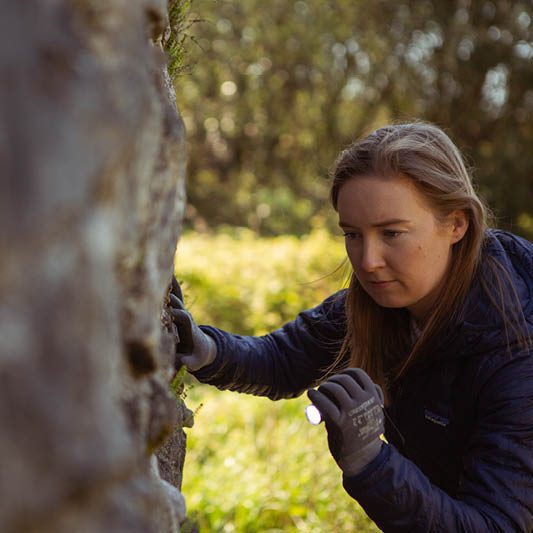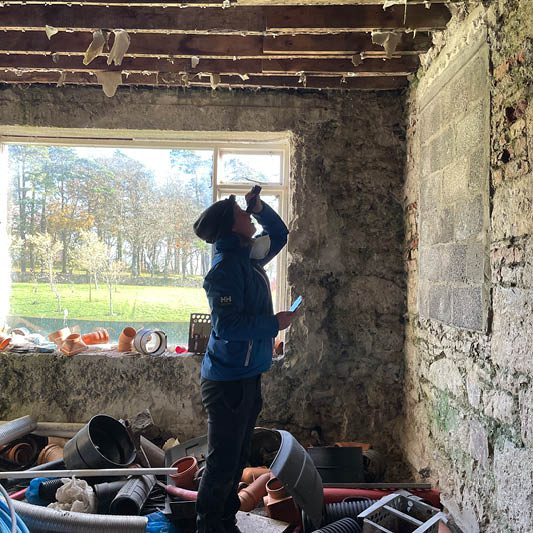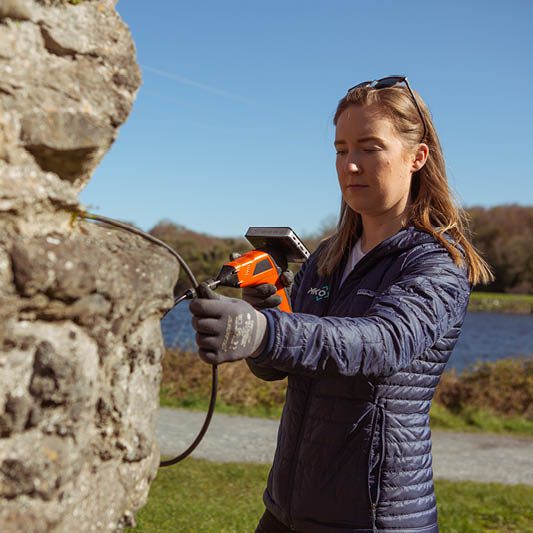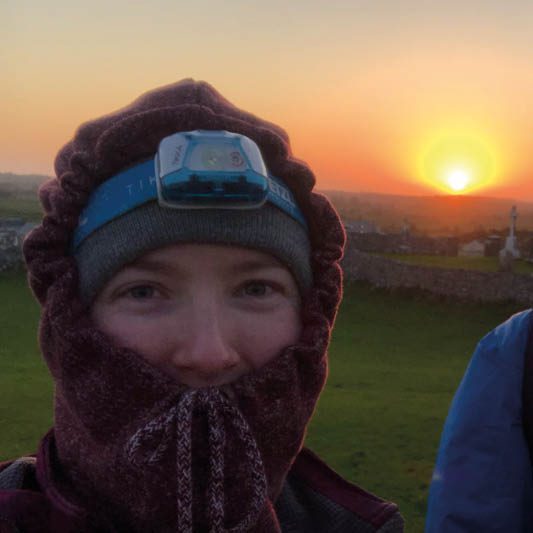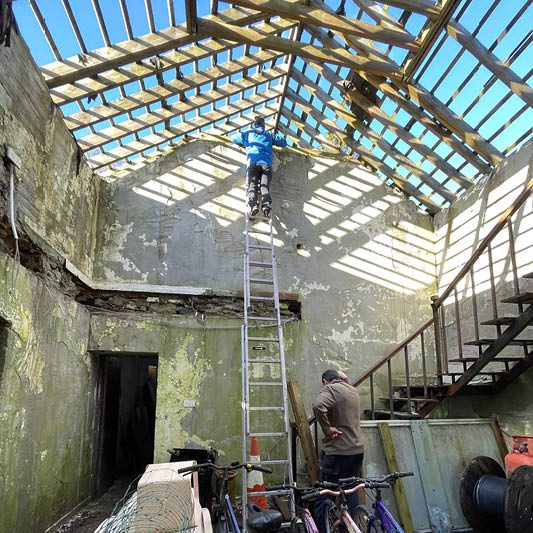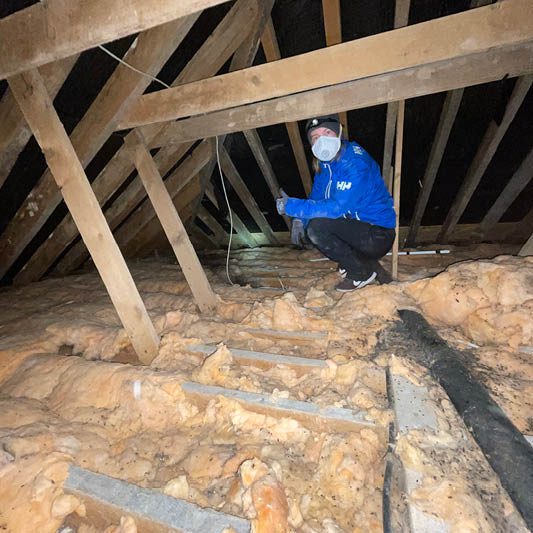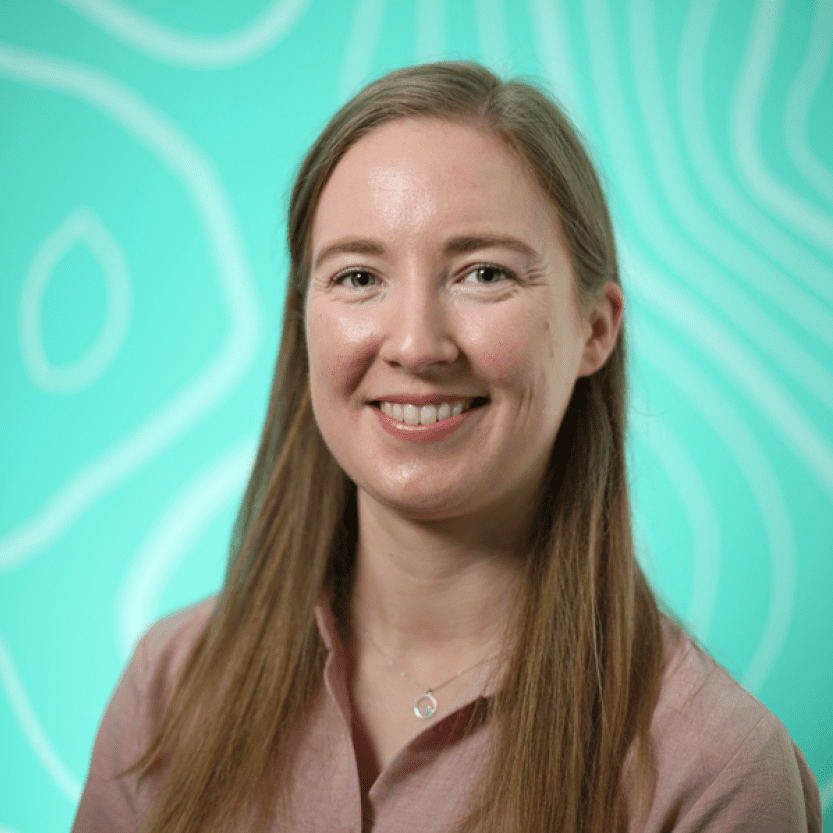
Aoife discusses her journey and how it led her from Graduate Ecologist to Project Director at MKO. Aoife graduated with a Bachelor of Environmental Science and a Masters in AgriBiosciences from the University of Galway and joined MKO in 2019.
Can you describe your current role and the responsibilities?
I started as a Graduate Ecologist in early 2019, primarily responsible for completing field-based surveys, data analysis and management, with occasional reports. My role has changed in the past three and a half years as I’ve taken on more responsibility, increased my skill set, and developed my working relationships. My current role is as a Project Director, which includes managing a growing dedicated Bat Surveys team. As well as continuing to undertake surveys and complete impact assessments and reports, my responsibilities now also include influencing designs and engaging with project stakeholders, clients, sub-consultants, relevant authorities and other project team members; ensuring all staff are adequately trained and have the resources/tools necessary to complete the job; project management and team finances, recruitment and business development, reviewing reports and providing feedback and guidance, among other tasks.
How did you find the recruitment process for your role at MKO?
Professional but easy-going! At the time, some friends from college were working with MKO and encouraged me to apply for the Graduate Ecologist role. Around the same time, I had completed a two-day bat training course where I met another group of people working at MKO, and they gave me some insights into what I could expect in a role as an ecologist, and I was convinced! I got the details of the team lead and applied the following week! After making contact, I received a response quickly, and an interview was arranged. The interviewers put me at ease early on with their friendly nature and engaging questions, and they were professional throughout. Overall, I found the recruitment process to be well-structured.
How would you describe the culture at MKO?
When I started at MKO, the first thing I noticed was that everyone made a point to say hi and introduce themselves to any new starters. There was always a friendly atmosphere but also a sense of inclusivity, respect and support, making it an enjoyable workplace. As the company has and continues to grow, and with the introduction of hybrid working, it’s a bit more challenging to get to know everyone, but the company’s flexible, inclusive and adaptable nature has helped to build these relationships. The efforts of the social committee and operations team to organise a wide variety of events (including webinars/talks, knowledge sharing, day trips, nights out etc. – something for everyone!) has played a massive role in encouraging people to mix between the teams, grow and develop within the company.
What do you enjoy most about your role at MKO?
What I enjoy most about my role is that no two projects are the same. We often collaborate within our teams to find solutions to ecological challenges on projects, particularly bats. We get to work on a large variety of challenging projects, from the restoration of heritage structures to wind farms to residential developments. It’s always satisfying when we get a good outcome on a project, and the team effort pays off.
What do you think future graduates would want to know about MKO?
When I was a graduate, I wanted to know whether there were opportunities within the company to develop my career and if any support was available to complete additional training/research to enhance my skills. I think future graduates would be interested to know that MKO listens to and encourages individuals to make suggestions about personal development. MKO aims to facilitate this through extensive internal training plans and subsidised external training courses. MKO’s support and encouragement towards its employees’ career progression is evident in my career progression.
What advice would you give potential applicants?
It helps if a potential candidate shows a genuine interest in ecology and the environment outside of their degree. Any volunteer experience in field skills or even demonstrating a general knowledge of Irish flora and fauna or Irish legislation goes a long way. Additionally, given the nature of the work, i.e. seasonal surveys, it helps to be as flexible as possible, to attend as many surveys and gain as much experience as possible. Ask loads of questions and try to make the most out of the opportunity!



